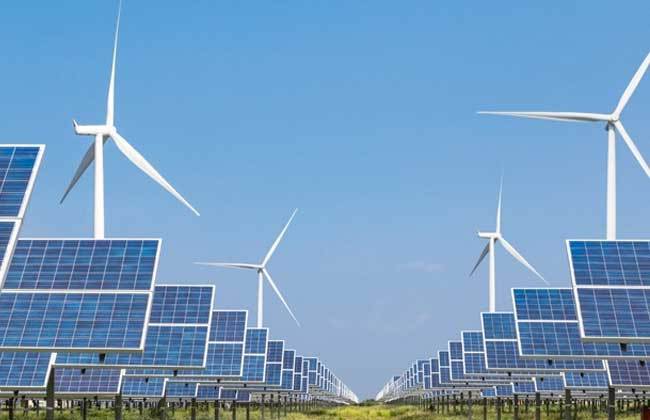Energy Projects Security, Protecting Critical Assets in Remote Locations
Energy projects are critical to the infrastructure and economic growth of any country. These projects, whether focused on oil, gas, wind, or solar power, require significant investments and play a vital role in powering homes, businesses, and industries. However, these projects often operate in remote and isolated locations, making them vulnerable to a wide range of security threats. The importance of Energy Projects cannot be overstated, as protecting these assets is crucial to ensuring the continuous and efficient supply of energy.
Alpine Protection Services
Alpine Protection Services is a leading provider of inclusive security solutions, dedicated to safeguarding businesses, residential properties, and critical infrastructure. With a focus on customized security plans, Alpine Protection Services tailors its offerings to meet the unique needs of each client, ensuring maximum protection and peace of mind. Their team of highly trained security professionals is equipped with the latest technology and expertise to address a wide range of security challenges, from on-site guard services to advanced surveillance systems. Committed to excellence and reliability, Alpine Protection Services is the trusted partner for securing what matters most.
The Role of Technology in Enhancing Energy Projects
Technology plays a crucial role in enhancing Energy Projects Security, particularly in remote locations. Advanced surveillance systems, including drones and remote cameras, can monitor vast areas of land and detect potential threats before they escalate. These technologies allow for real-time monitoring and can provide security teams with valuable information to respond quickly to incidents. In addition, the use of access control systems, such as bio-metric scanners or smart cards, can help restrict access to authorised personnel only, reducing the risk of internal threats.
Challenges of Securing Remote Energy Projects
Remote energy projects face unique challenges that make security a complex issue. The isolation of these sites means that they are often far from urban centers, which can delay emergency responses and make it difficult to provide adequate security. The terrain in these remote locations can be harsh and difficult to navigate, further complicating security efforts. In addition, the nature of these projects, which often involve hazardous materials and expensive equipment, makes them attractive targets for theft, vandalism, and even sabotage.
Types of Security Threats in Remote Energy Projects
Security threats to remote energy projects can come from various sources. One of the most common threats is theft. Criminals may target these sites to steal valuable materials such as copper wiring, fuel, or even entire pieces of machinery. Vandalism is another significant threat, where individuals may damage equipment or infrastructure, leading to costly repairs and potential delays in energy production. In some cases, remote energy projects may also face threats from organized crime or militant groups, who may seek to disrupt operations for financial gain or political purposes.
Importance of an Inclusive Security Plan
To effectively protect critical assets in remote energy projects, it is essential to have an inclusive security plan in place. This plan should include a thorough assessment of potential risks and vulnerabilities specific to the location and type of energy project. It should also outline the security measures needed to mitigate these risks, including physical barriers, surveillance, and access control. In addition, the plan should incorporate emergency response procedures, ensuring that all personnel are trained and prepared to act in the event of a security breach.
Physical Security Measures for Remote Energy Projects
Physical security measures are the foundation of Energy Projects Security. Fencing, gates, and barriers can deter unauthorised access and protect the perimeter of the site. In addition to these physical barriers, lighting is a critical component of security. Well-lit areas make it more difficult for intruders to approach the site undetected. Security personnel should also be deployed to patrol the site regularly, providing a visible deterrent to potential threats. In some cases, security dogs or other deterrents may be used to enhance physical security.
The Role of Security Personnel in Remote Locations
Security personnel play a vital role in protecting remote energy projects. These individuals are responsible for monitoring the site, responding to incidents, and ensuring that all security protocols are followed. In remote locations, security personnel may face additional challenges, such as long hours, harsh environmental conditions, and limited access to resources. Therefore, it is crucial to provide them with the necessary training and equipment to perform their duties effectively. In addition, regular communication between security personnel and project management is essential to address any emerging security concerns.
Cyber Security in Energy Projects Security
In addition to physical security, cybersecurity is an increasingly important aspect of Energy Projects. Remote energy projects often rely on complex control systems to manage operations, which can be vulnerable to cyber-attacks. A successful cyber-attack could disrupt operations, cause equipment failures, or even result in environmental disasters. Therefore, it is essential to implement robust cybersecurity measures, including firewalls, encryption, and regular system updates, to protect these critical systems from potential threats.
Collaboration with Local Communities
Collaborating with local communities can be a valuable strategy for enhancing Energy Projects. Local residents often have a deep understanding of the area and can provide valuable insights into potential security risks. Building positive relationships with local communities can also foster a sense of shared responsibility for the security of the energy project. In some cases, local residents may be employed as security personnel, providing them with a sense of ownership and motivation to protect the site. In addition, community engagement can help mitigate potential conflicts and ensure that the energy project operates smoothly.
Conclusion
In conclusion, Energy Projects Security is essential for protecting critical assets in remote locations. These projects are vital to the energy infrastructure and economic stability of any country, and their security must be a top priority. By implementing inclusive security plans, utilising advanced technology, and collaborating with local communities, energy companies can effectively mitigate the risks associated with remote energy projects. As the energy industry continues to evolve, the importance of robust security measures will only increase, ensuring the continued success and sustainability of these vital projects.



